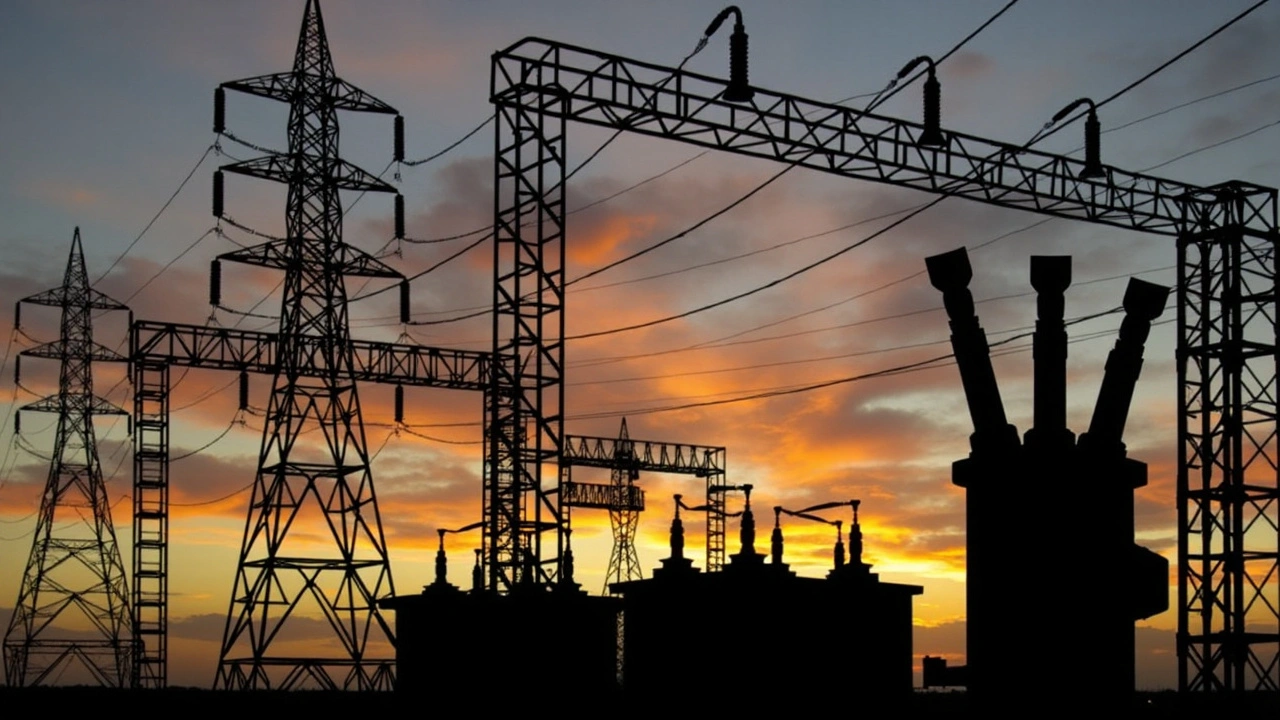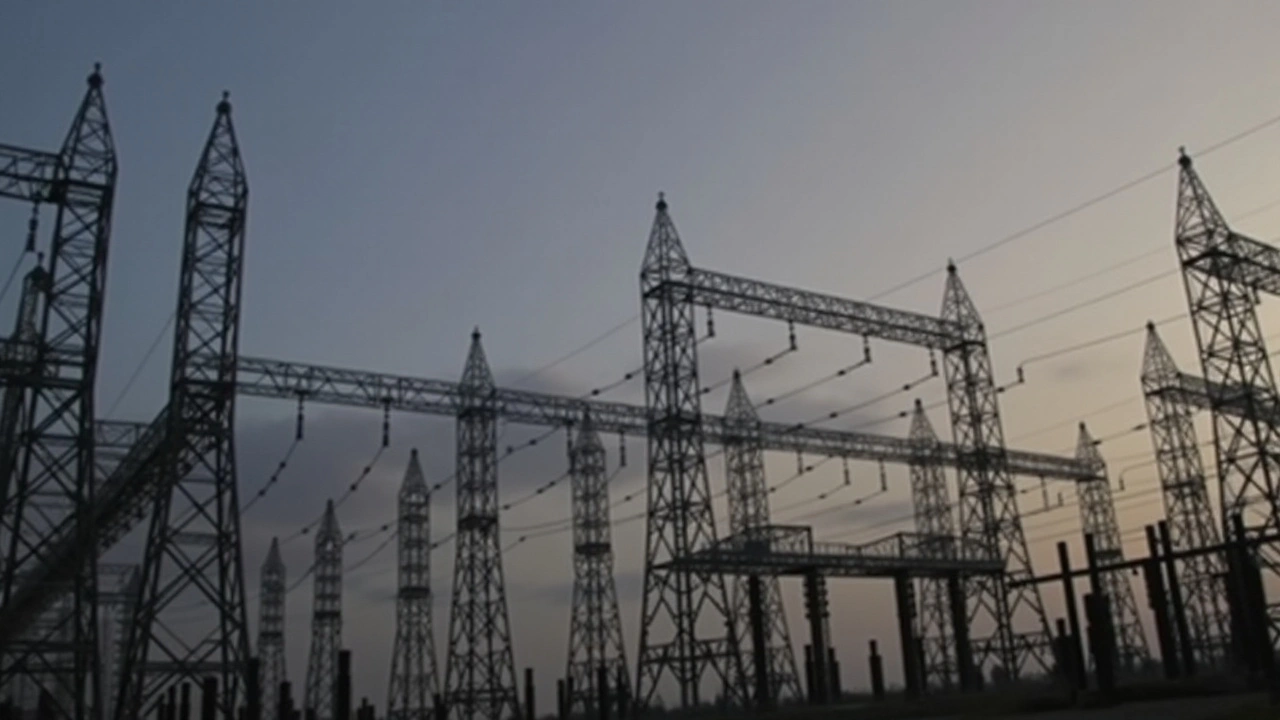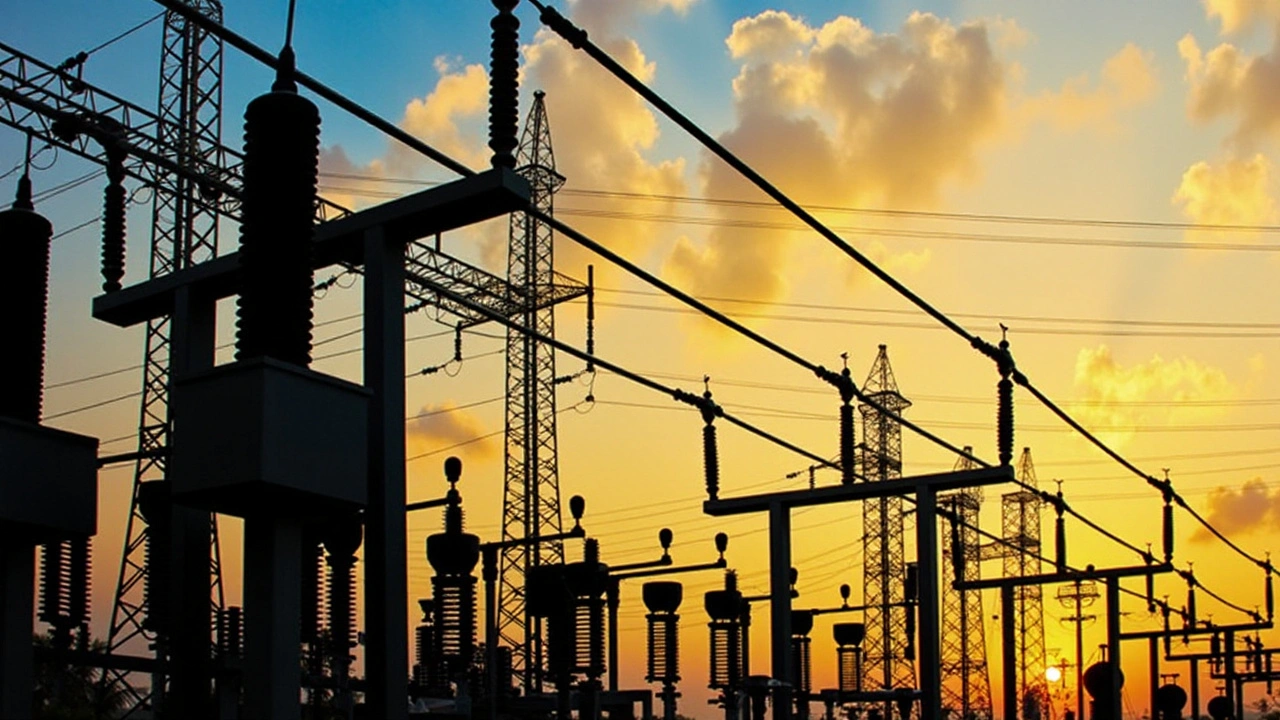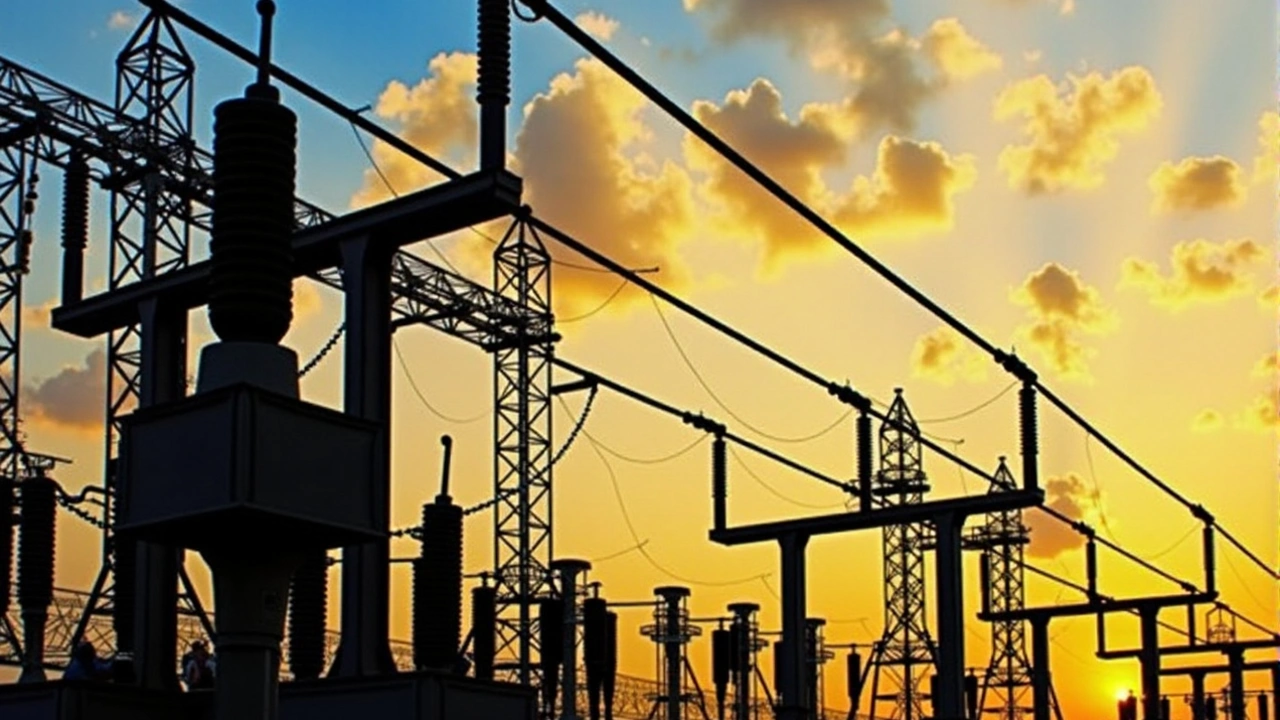
Nigeria Faces Sixth National Grid Collapse in 2024
In an unsettling development that has become all too familiar to the residents of Nigeria, the national grid has collapsed yet again, marking the sixth instance of such an occurrence in the year 2024 alone. This most recent failure has left the nation in the throes of a comprehensive blackout, with checks by Nairametrics confirming that all distribution companies are receiving no power whatsoever from the central transmission company. As a result, both urban and rural areas have been plunged into darkness, causing widespread disruption in daily activities and significantly hampering economic operations.
The repeated failures of the national grid are symptomatic of the myriad challenges plaguing Nigeria's power sector. With aging infrastructure that some experts consider beyond its functional lifespan, coupled with operational inefficiencies, the grid has struggled to cope under even moderate demand. These failures have not only stalled domestic and industrial productivity but have also raised prices for consumers forced to turn to costlier alternatives like generators. In a country with vast energy resources, these power outages are particularly galling for both consumers and businesses alike.

Impact on Nigerian Society and Economy
The nationwide blackout has disrupted various facets of life, from homes to hospitals, schools to businesses, and more. With electricity being a backbone of modern life, its absence hinders everything from food storage in households and the cold chain in healthcare, to commercial productivity and communication. In the industrial sector, the blackout has resulted in costly downtime, which many companies may struggle to afford. For smaller businesses, particularly those involved in perishables, the economic impact is immediate and drastic.
The financial strain of these recurring power outages cannot be overstated. With the frequent use of generators becoming almost indispensable, operating costs have skyrocketed. Businesses facing increased fuel costs due to the grid's failures find themselves in precarious financial situations, sometimes requiring sacrifices in staffing or production lines. On a larger scale, these issues contribute to inflationary pressures within the economy, impacting consumers, businesses, and ultimately, the broader economic landscape.

Addressing the Root Causes in Nigeria's Power Sector
While the immediate inconvenience caused by these blackouts is readily apparent, the systemic issues triggering them are complex and require comprehensive solutions. Chief among these are infrastructural upgrades and modernization. With much of the national grid predating Nigeria’s independence, experts highlight the critical need for revamped infrastructure that can not only meet contemporary demand but also anticipate future growth. Additionally, operational inefficiencies must be addressed, ranging from maintenance protocols to power theft mitigation and better-regulated distribution policies.
There is a consensus among industry stakeholders regarding the need for significant investment in the power sector. Such investment is pivotal not only for replacing outdated systems but also for incorporating renewable energy sources that align with global trends toward sustainability. Furthermore, international partnerships could present viable pathways toward enhanced technical expertise and funding needed to overhaul the existing grid.
The Role of Government and Policy
The Nigerian government's response to these persistent issues will be pivotal in determining the future stability of the power grid. Past initiatives have demonstrated mixed results, often undercut by bureaucratic delays or lack of sustained political will. However, given the urgency and frequency of these collapses, a call for swift and decisive action is inevitable. Crucially, policies need to be crafted that encourage both private sector involvement and international cooperation, fostering an environment conducive to investment and innovation.
Legislative reforms that address bottlenecks in policy implementation may also provide a necessary framework for more efficient governance of the power sector. In addition, public-private partnerships could prove instrumental in expediting necessary infrastructural changes while spreading the financial burden across more stakeholders, thereby relieving pressure on the central government.

A Path Forward for Nigeria's Energy Stability
Without a doubt, the repeated collapses of Nigeria’s national grid have exposed the vulnerabilities of its power sector. The need for a multifaceted approach to rectify these issues is more pressing than ever. Stakeholder engagement, inclusive policymaking, and strategic investment are critical components of a long-term solution. Optimism remains that through collective effort and visionary leadership, Nigeria could emerge with a robust, reliable power grid capable of fostering economic growth and improving quality of life for its citizens.
As Nigeria continues to grapple with these persistent challenges, it is imperative that all involved parties seize the opportunity to transform the nation’s energy landscape. This transformation could not only avert future grid collapses but also serve as a blueprint for sustainable development in the nation. The path to a brighter future is clear, albeit fraught with challenges that require immediate and decisive action.
Comments (19)
-
Amit Agnihotri October 15, 2024
The grid's collapse is a predictable outcome of decades of neglect. Officials need to stop making excuses and start delivering real solutions.
-
Erica Watson-Currie October 20, 2024
Power outages reveal how fragile the system truly is
-
Mark Pelletier October 24, 2024
It is astonishing how the national grid continues to fail despite the wealth of natural resources Nigeria possesses
One could argue that the root cause lies in a century‑old infrastructure that has never been substantially upgraded
Each collapse chips away at public confidence and magnifies the cost of doing business
From an investor's perspective the risk premium has skyrocketed, making capital inflow harder to secure
The reliance on diesel generators has inflated operational expenditures for even the smallest enterprises
When a hospital loses power, lives hang in the balance, and the cold chain for vaccines is jeopardized
Manufacturing plants suffer downtime that ripples through supply chains, causing delays and lost orders
Urban households, accustomed to modern conveniences, find their daily routines disrupted, affecting productivity
Rural communities, already underserved, experience an even deeper digital divide
Policy inertia and bureaucratic bottlenecks have turned what could be a technical fix into a political quagmire
International partners have offered expertise, yet implementation stalls at the level of local governance
Corruption, though not the sole factor, siphons resources away from essential maintenance projects
Renewable energy integration offers a promising avenue, but scaling it demands coordinated investment and regulatory clarity
Without a decisive, transparent plan, the cycle of blackouts will likely repeat, eroding both economic growth and social welfare
Hence, a comprehensive overhaul, backed by accountable leadership and stakeholder collaboration, is not just desirable-it is indispensable
-
Cheyenne Walker October 29, 2024
From a technical standpoint, the aging transmission lines are operating well beyond their design parameters, leading to frequent failures.
The lack of systematic preventive maintenance exacerbates the situation, causing cascading outages.
Investing in modern, high‑capacity conductors and automated monitoring can substantially reduce downtime.
Moreover, deploying decentralized renewable micro‑grids would provide resilience against central grid failures.
Policymakers should prioritize clear regulatory frameworks to attract private capital into these projects.
In short, a combination of infrastructure renewal and policy reform is essential for sustainable power supply.
-
Jo Simpkinson November 2, 2024
Oh, the drama of flickering lights and buzzing generators – truly a spectacular show for the everyday hero.
But seriously, who needs reliable electricity when you have endless optimism?
-
Darrell Kuykendall November 7, 2024
Keep pushing forward! Every blackout is just a chance to prove how resilient we can be!!!
-
Dean Obijekwu November 12, 2024
It's good to stay optimistic, but we also need realistic steps to improve the situation.
-
finlay moss November 16, 2024
i think the grid problem is cause by olde equipmant and lack of investmant
-
Carl Gough November 21, 2024
Look, if you keep blaming "old equipment" without handing over actual cash, you're just spouting nonsense – get real!
-
Rebecca Hayes November 26, 2024
From an operational perspective, the increased reliance on diesel‑powered generators is inflating OPEX across sectors.
Adopting a phased transition to hybrid renewable systems can mitigate these rising costs while enhancing grid stability.
-
Jason Underhill November 30, 2024
Sure, because solar panels will solve everything instantly :)
-
Kirsten Wilson December 5, 2024
its kinda wild how the power keep goin out like that its like a never ending movie
-
Michelle Roque December 10, 2024
the constant blackout is affectin daily life a lot
-
Killian Lecrut December 14, 2024
Wow, another grid collapse! Guess we’ll just keep dreaming about stable electricity while we sprint to the generator store.
-
Subi Sambi December 19, 2024
Honestly, this recurring chaos is a testament to chronic mismanagement; if leaders cared, they'd have prevented this disaster long ago.
-
Joshua Rainey December 23, 2024
Everyone pretends they don’t see the obvious: without a massive influx of foreign tech and funding, Nigeria will stay stuck in perpetual darkness.
-
Gail Robb December 28, 2024
Right, because throwing money at the problem has never failed before; maybe we should just blame the sun.
-
Pradeep Chabdal January 2, 2025
One must acknowledge the intricate interplay of historical policy decisions, infrastructural decay, and contemporary fiscal constraints when dissecting Nigeria's energy conundrum.
-
andy heri January 6, 2025
We need to keep supporting each other through these challenges.
